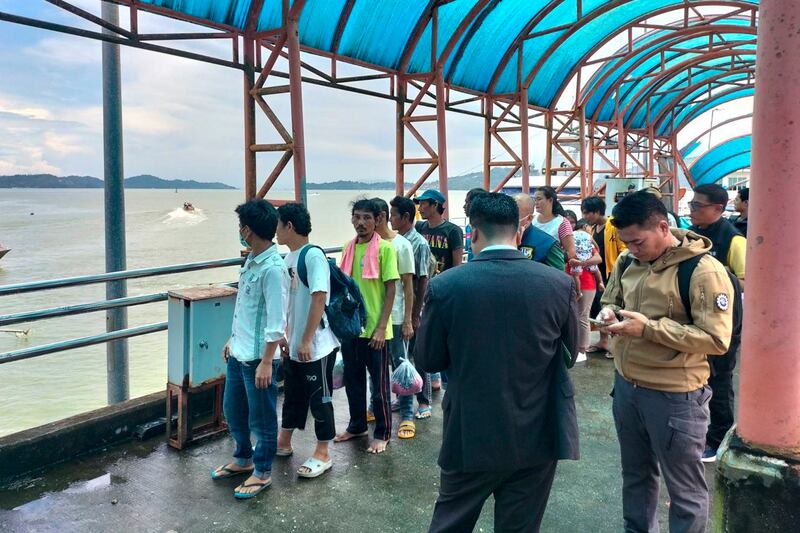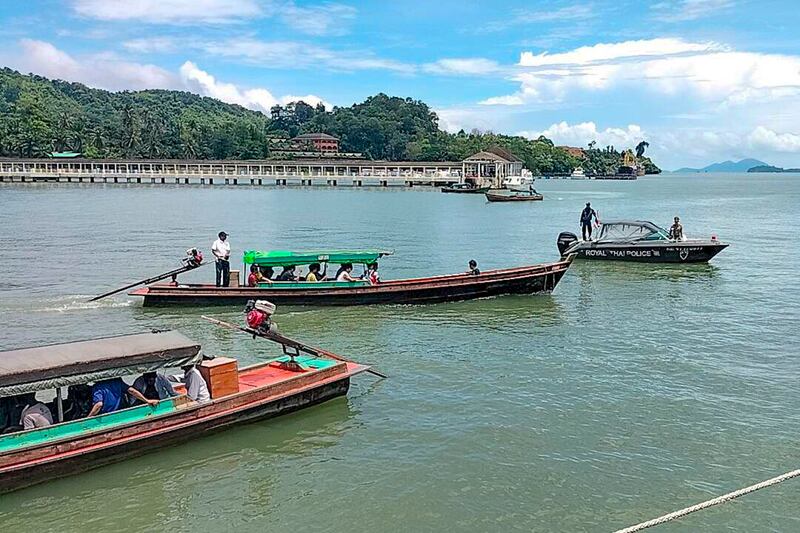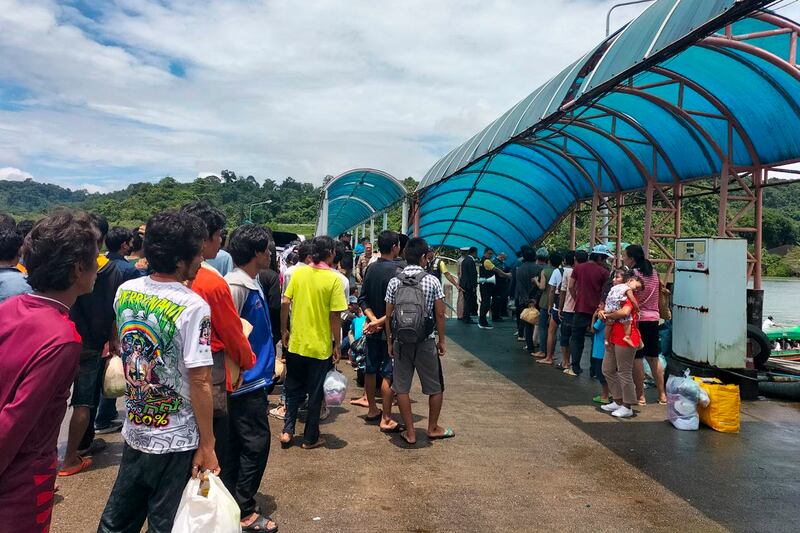Junta authorities have forcibly recruited nearly six dozen Myanmar nationals repatriated by Thailand after serving time in the country’s Ranong Prison, family members said Friday.
Desperate to shore up its dwindling ranks amid mounting losses to rebel groups and mass surrenders, the junta enacted a conscription law that came into effect in April, three years after the military seized power in a coup d'etat.
Under the law, men aged 18-35 and women aged 18-27 must serve a minimum of two years in the military. Young people have been fleeing the country in droves since its implementation, many of whom have traveled to neighboring Thailand where they landed in prison on immigration charges.
On July 30, Thai authorities deported more than 150 Myanmar nationals from Ranong Prison to Myanmar’s southernmost port of Kawthoung and more than 120 others on Aug. 7.

Junta authorities arrested at least 23 people from the first group and 48 from the second group upon their return, according to residents of the border town.
One resident told RFA that the deportees were all men over the age of 20, many of whom were from Myanmar’s wealthier northern cities such as Bago and Yangon and able to pay bribes to escape forced recruitment.
“However, some people were residents of Kawthoung who couldn’t afford to pay,” said the resident who, like others interviewed for this report, spoke to RFA Burmese on condition of anonymity due to security concerns. Those who bribed authorities were “released immediately,” he said.
RELATED RFA CONTENT
[ Myanmar junta authorities prevent young adults from leaving the country by airOpens in new window ]
[ Myanmar junta orders its workers to pay it part of their Thai wagesOpens in new window ]
[ Myanmar opponents of military warn scores of junta staff to quitOpens in new window ]
[ Minors make up for labor shortage caused by Myanmar’s conflict, draftOpens in new window ]
[ Junta deploys first round of military recruits to Myanmar’s frontlinesOpens in new window ]
Myanmar's military draft has created a cottage industry of corruption as administrators across the country offer eligible citizens a way out of fighting in exchange for a price, sources told RFA in April.
Sources said that bribes to avoid service typically range from 500,000 kyats (US$240) to a staggering 50 million kyats (US$23,830), depending on the area and draft quota requirements. Even the low end of the range represents several times the monthly income of the average worker in Myanmar.
‘Taken like cattle’
One 24-year-old undocumented migrant worker who was deported to Kawthoung after serving a prison term in Thailand was among those arrested by the junta on Aug. 7, but later released after paying more than 6,000 Thai baht (US$170), his mother-in-law told RFA.
“They were being taken like cattle on a truck to a military base,” said the mother-in-law. “We didn’t have enough money for his release, so we asked my sister to borrow money from others.”
The recruits were first taken to the Kawthoung-based Infantry Battalion 262, although it was unclear which units they would be deployed to after their training.

The woman said that prior to her son-in-law’s arrest, her son was also arrested in Kawthoung after being deported from Ranong while the junta was recruiting in April. He was later released after paying 200,000 kyats (US$100).
Thar Kyaw, a member of the Myanmar Social Welfare Association based in Ranong, told RFA that his organization frequently receives calls from family members of those who are at risk of deportation after serving time in Ranong Prison.
“In the past, we could guarantee the safe return of released prisoners to their homes before they were handed over to their parents, but at present, we have no authority to do so,” he said. “Thai authorities have no power to protect them from conscription [upon their return], so whether they are arrested or not is decided by the junta troops.”
‘Grave violation of human rights’
Myanmar nationals are deported to Kawthoung every month after being held for immigration violations in Ranong, and at least 355 persons were repatriated in July, according to aid workers assisting in labor affairs.
Nay Bone Latt, the spokesperson for the shadow National Unity Government’s Prime Minister’s Office said that the junta is committing a “grave violation of human rights” by arresting those released from prison in Thailand.
“It is advised that Thai authorities handle such cases very cautiously,” he said. “While [the junta] is losing battles on various frontlines, they are forcibly recruiting for their forces.”

An official from the chairman’s office of Myanmar’s Central Body for Summoning People’s Military Servants in the capital Naypyidaw told RFA that he was unaware of any illegal arrests, and had instructed all township-level offices to abide by the rules and regulations for conscription under the country’s military-drafted constitution.
The military carried out two rounds of conscriptions in April and May, training about 9,000 new recruits in total. A third round of conscription began in late May, with draftees sent to their respective training depots by June 22.
Translated by Aung Naing. Edited by Joshua Lipes and Malcolm Foster.
